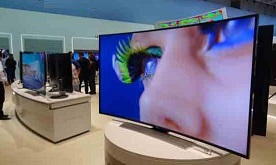
1- Introduction:
The increasing speed of technological advancements in the contemporary world and the rapid development in the field of communication has been the center of gravity of social development. Unexpected and completely new developments in the field of communication by telephone, radio, television, teletype machine, etc., have brought profound economic and social transformations and have put this question in front of us in order to keep up with them and benefit What methods and tools should be chosen from them and what organizations and institutions should be equipped in order to create an atmosphere suitable for their acceptance in the society.
If we pay attention to the importance of communication from a broader point of view, that is, on a global level, we must say that today’s world is the world of information, and the most important point in this is to fully understand the question of how to have a correct information policy in such a world. acquired? Now that development is achieved by formulating a correct information and awareness system, not paying attention to the importance and use of mass communication media deprives the managers and planners of various organizations of a large amount of information.
But on the other hand, the use of mass communication tools and media in order to obtain information also requires the utmost precision and attention; Because these media mainly create a certain social hierarchy in the society, which includes powerful small groups, a large group of the middle class, and a large group of people, and of course, at the top of these three groups, the very few groups of the rich. aristocracy) who always impose their desired demands, standards, and values on the whole society, and the lower classes also imitate the ruling ideals without being aware of them.
Therefore, it is better to analyze the content of mass communication media with critical views. In this speech, among the various media of mass communication, the most attention has been directed to television and its role in the socialization and learning of people, especially in childhood and adolescence.
2. The importance of television
Television is one of the powerful media of mass communication. This tool, due to its unique features, is able to transmit visual messages to the farthest places and address countless people around the world. Television as an important communication tool can be used in raising awareness, Organization, politicization, and technique should play an important role. The impact of the message of this powerful tool on public opinion and its performance, especially in terms of education and socialization, should not be overlooked.
3. The emergence of television in Iran and the world
The world’s first television transmitter was launched in England in 1936. Television in Iran was opened in 1958. The educational department of Iran TV was founded in November 1343; But due to technical failures and a lack of necessary facilities, its activities were stopped after some time. In 1352, this department resumed its activity; But again, due to the wrong policies of the past regime and the lack of explanation of educational goals, it could not gain a favorable position in the education system of Iran.
4. Television and leisure time
The most important phenomenon related to television from the point of view of socialization is the amount of time spent watching television, which means that in advanced societies, people spend most of their free time watching television instead of socializing with friends, teachers, or adults. About the negative effects of watching TV for a long time, Popper states that spending more time watching TV shows less interest in reading and is more likely to make a person lazy and psychologically passive, or to problems. Such as violence, aggression, and fear of real violence. The fact is that commercial-stimulating programs dominating television have a negative impact on the socialization of the young generation. But Popper points out some points in this regard. In his opinion, the emergence of phenomena such as cultural prejudices, violence against foreigners, and fear and hatred of them in the countries of Rwanda, Yugoslavia, and Algeria, has no special relationship with watching television by the people of these countries, or cannot be attributed to the shortcomings of democracy. And he attributed authoritarian regimes in some countries to people’s high use of television.
The expansion of mass communication media, especially television, often occurs in parallel with people’s free time. These media have pushed leisure to different social strata and turned it into a universal phenomenon. With the industrialization of societies, entertainment has given way to watching, and the phenomenon of watching plays an important role in the construction of social hierarchies.
5. Television and influence on public opinion
It was said that the Tamasha industry can create new and strong social classifications. This happens in various political, artistic, religious, and similar fields. For example, sometimes sports activity on TV is considered a kind of show. A person may consider himself an athlete simply because he spends many hours of the weekend watching football matches, memorizes the names of all the winners and champions of the Olympic Games, and develops a kind of behavioral identification with them.
The evidence indicates that the naivety of many people has caused sports to turn into a commercial or industrial profession, and sports honors become more important and sometimes become sacred. In fact, It can be said that abusing people’s free time has become a commercial issue for some people.
Another example is the position of stars in the art world, which has been significantly enhanced through the spectacle industry. Although mass communication media do not create stardom by themselves, they support it and make it seem acceptable to a large extent and increase the popularity of stars among people in society. So, the development of the communication industry has brought special privileges for this group. In this way, it can be claimed that the emergence of privileged classes depends on the performance of mass communication media, especially television.
In the same way, the changes that occur in informing about political issues as a result of watching television images is one of the examples that clearly show the influence of this media on public opinion. Most of analysts Television programs believe that television has changed the nature of political thought. The orientation of public opinion is no longer based on rational assessments of existing issues, but rather on emotional responses that seek to understand the inferences that come from watching images. TV appears.
The presentation of images related to economic and commercial issues is also undergoing changes. For example, today, economic advertising is not done according to rational functions, and the choice of buyers is not based on their judgment of the relative value of commercial and economic products; Rather, it is due to the feeling and excitement that advertising images create in them.
